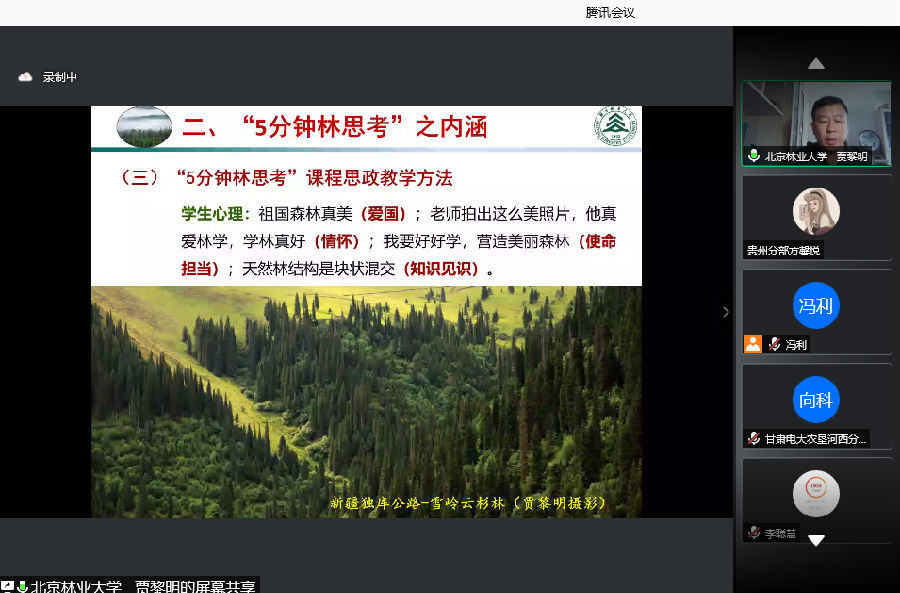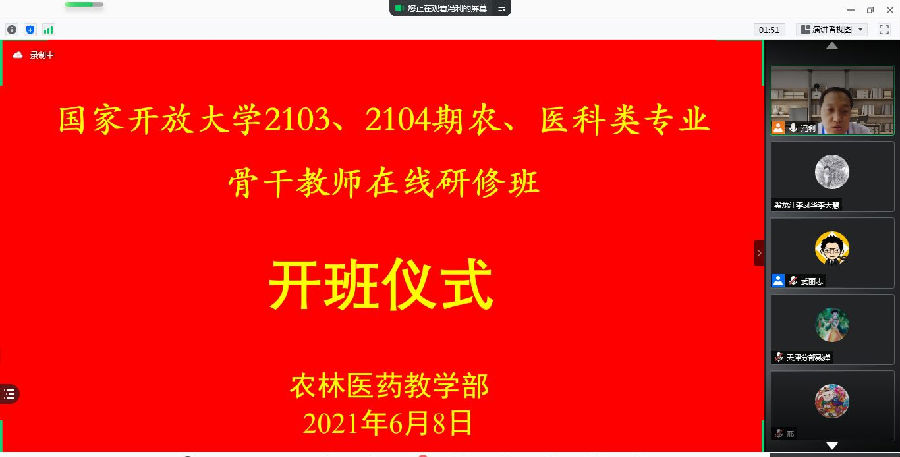 The Open University of China (OUC) held the 2103rd and 2104th training classes for backbone teachers in the agricultural (including "One College Student Per Village") and medical programmes from 8 to 11 June 2021.
The Open University of China (OUC) held the 2103rd and 2104th training classes for backbone teachers in the agricultural (including "One College Student Per Village") and medical programmes from 8 to 11 June 2021.
The events aimed to strengthen the ability and commitment of OUC teachers in these areas in terms of ideology, politics and morality, as well as online-teaching skills. The classes, which took place online because of Covid-19, attracted nearly 200 teachers from the OUC headquarters, 33 OUC branches, and the School of Life and Health.
Li Guangde, vice dean of the OUC Faculty of Agroforestry and Medicine, presided over the opening ceremony and delivered a speech. Wu Lizhi, a researcher with South China Normal University; two top rural college students in the "One College Student Per Village” Programme and the publicity group of Lishui Radio and TV University, led by professor Shi Leifen; Sun Hongtao, associate professor at Beijing Normal University; Jia Liming, a professor at Beijing Forestry University; Du Changlin, an associate professor at Capital Medical University; Professors Zhu Junfeng and Shen Huolin of China Agricultural University; Professor Wang Xianzhe of the Beijing University of Agriculture; Shi Chunfeng, director of the Economic Law Office and the Law Work Committee of the Standing Committee of National People's Congress; Liu Fuhe, vice president of the China Association of Poverty-alleviation and Development; Professor Zhai Suodi of Peking University Third Hospital; Wang Ling, chief superintendent nurse of Peking University People's Hospital; Professor Wang Ning of the China Centre for Disease Control and Prevention; Professor Sun Juan of Renmin University of China; Professor Qi Fangbin of Fujian Open University, and associate professors Tang Jiting and Zhao Yanfei of the OUC, all delivered special reports.


The classes, covering Party history, ideological and political education, online education, and the frontiers of agriculture and medicine, were organised into lectures, case studies, self-directed online learning, and student self-reflection, emphasising the learning process and student participation and development.
The participants said that the classes were timely and diverse in terms of both content and presentation, covering areas relevant to the profession, special topics related to Party history, and ideological and political education. They helped promote the teaching of Party history and provided broader horizons for ideological and political education in specialised courses, while enhancing their grasp of continuing and online education, rural revitalisation and the health of China, professional development and personnel training in agriculture and medicine, and of teaching methods. All agreed to do their best to put what they had learned to use and to foster virtue through moral education.
By Cao Qinzheng & Ma Jun, OUC